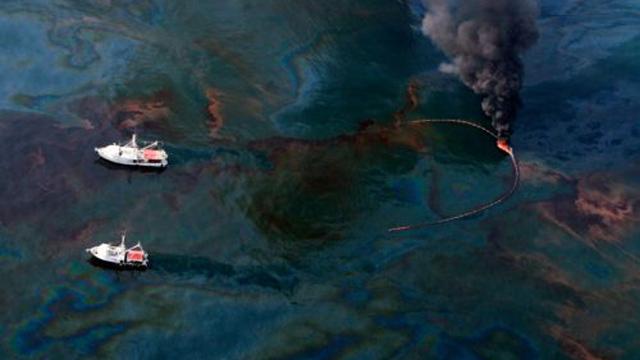
As the drive for oil forces companies into increasingly risky environments, major oil companies are failing to disclose the risks associated with their endeavors, according to a group representing global investors.
A new report released by Ceres found that ten of the world’s largest publicly-owned oil and gas companies failed to fully report risks associated with deep water drilling and climate change to the SEC or their investors. Of the ten companies, eight “provided minimal or no information about safety or environmental statistics,” or “investments in safety related R&D.” In fact, ExxonMobil received ratings of poor or no disclosure on 8 of 10 categories, only receiving a “Fair Disclosure” evaluation for corporate governance.
Such poor disclosure practices should concern investors and the public as oil companies race to tap wells thousands of miles beneath the sea in the Gulf of Mexico and in the ice-covered Arctic Ocean. Despite the high risk of operating in the extreme and unpredictable environment, Royal Dutch Shell is preparing to drill exploratory wells off the coast of Alaska’s North Slope this summer. While drilling will occur in shallower water than the Gulf of Mexico, the harsh conditions — coupled with a stark absence of infrastructure throughout the region — would significantly complicate any major oil spill response effort. The area lacks roads, railroads, permanent Coast Guard facilities, and the nearest deep water port is over 1,000 miles away. Therefore, any cleanup resources not already on hand would have a difficult time responding quickly.
The Ceres analysis noted that Shell has provided poor disclosure of its oil spill response strategies. Though Shell touted the many cleanup tools at its disposal, the Arctic is too remote to realistically “call upon significant resources” in the event of a spill, and the containment equipment referenced has not been tested in Arctic waters.
Recognizing these dangers, major insurance company Lloyd’s of London characterized offshore drilling in the Arctic as “a unique and hard-to-manage risk,” and German bank WestLB has refused to finance Arctic oil and gas development because the “risks and costs are simply too high.”
An oil spill in the untested Arctic Ocean could be devastating to the fragile marine environment and Alaska Natives who rely on the ocean for survival. If we have indeed learned our lesson from the tragedy of Deepwater Horizon, companies seeking to work in such extreme environments should demonstrate an ability to confront any and all possible risks, and should be prepared to inform their investors of these risks.
3 WAYS TO SHOW YOUR SUPPORT
- Log in to post comments
















